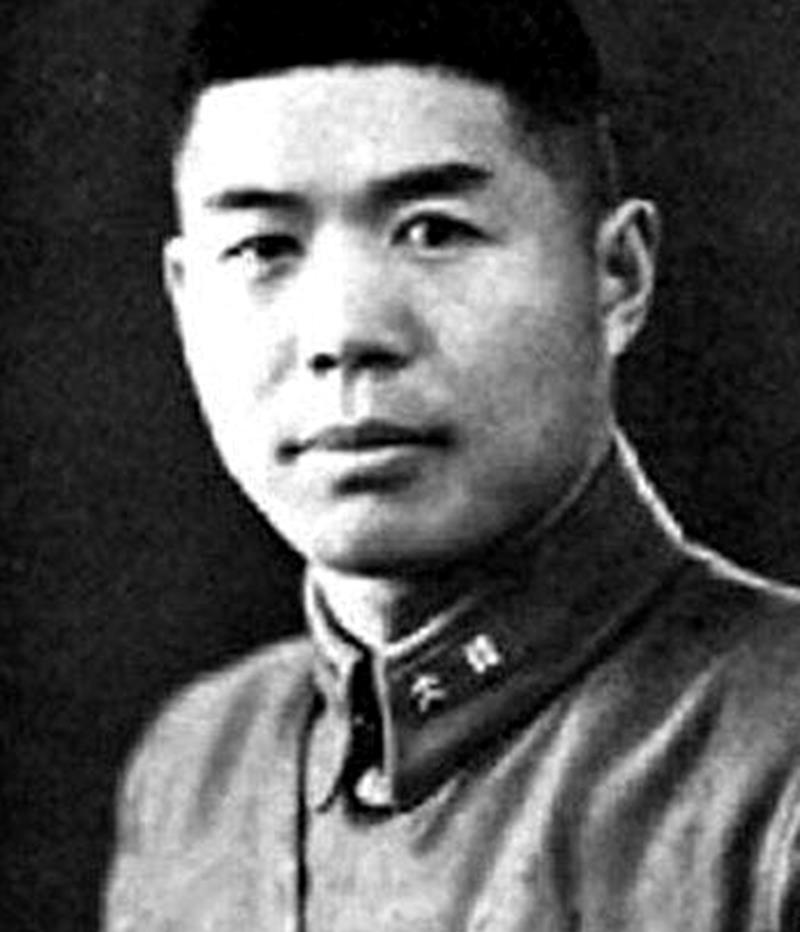After the three major battles, the Kuomintang soldiers were defeated and soon collapsed, but the Nationalist government headed by Chiang Kai-shek was not willing to lose, and they even fantasized about moving the capital to the southwest like the War of Resistance Against Japan and continuing stubborn resistance. When New China was founded, the Kuomintang also controlled parts of the southwest, such as Chongqing, the capital of the War of Resistance Against Japanese Aggression.
However, in the end, the People's Liberation Army advanced into the southwest, and Chongqing also ushered in the liberation. Speaking of the liberation of the southwest, there was a former chief of staff of the Kuomintang who made a great contribution, and this person was even called the first hero of the liberation of the southwest. Who is this person? How did he choose after the liberation of the Southwest? How does it end?

The hero of the liberation of the southwest was named Liu Zongkuan. Liu Zongkuan was born in 1905, a native of Shaanxi, although born in a peasant family, but Liu Zongkuan loved to learn, and was talented, and was one of the few readers of that era. In 1924, Liu Zongkuan defected to General Yang Hucheng, who was stationed in Shaanxi, and applied for the Whampoa Military Academy on the recommendation of General Yang Hucheng, and finally successfully enrolled in the Huangpu III.
After completing the Whampoa Military Academy, Liu Zongkuan continued to be admitted to the Army University for further study, and graduated from the Army University with the first place. Such an excellent student, and also from the Huangpu department, so Liu Zongkuan successfully attracted the attention of Chiang Kai-shek, who intended to win him over, and even personally issued him a graduation certificate at the graduation ceremony, and also personally gave him a letter of appointment, appointing Liu Zongkuan as a major general in the Central Army. However, Liu Zongkuan was not tempted by Chiang Kai-shek, and after graduation, he decided to return to his hometown and returned to the Northwest Army to become the chief of staff of the major general of the 38th Army.
Unfortunately, Liu Zongkuan also offended Chiang Kai-shek because of this move. In 1941, Liu Zongkuan was falsely accused by Chiang Kai-shek's concubine Hu Zongnan, who was suspected of drug trafficking. In order to exclude dissidents, Chiang Kai-shek personally ordered Liu Zongkuan to be executed, but fortunately Liu Zongkuan was well-liked, and under the rescue of Feng Yuxiang and others, he was only sentenced to 13 years in prison.
On the eve of the victory of the War of Resistance Against Japan, Liu Zongkuan was released on medical parole and gradually regained his freedom. After the victory of the War of Resistance Against Japan, Liu Zongkuan saw more and more through the corrupt nature of the Kuomintang, and he did not want to continue to serve Chiang Kai-shek, but planned to go to Yan'an. However, at that time, Zhang Qun, the director of the Chongqing camp on the Kuomintang side, needed an assistant, and Liu Zongkuan became the most suitable candidate because of his outstanding experience, and under the planning of our party, Liu Zongkuan finally accepted the task of lurking in the Chongqing camp and became the chief of staff of the major general of the Chongqing camp, and he also became a senior general installed by our party in the southwest.
After the end of the three major battles, Chiang Kai-shek was not willing to lose, and he fantasized about continuing to use the southwest as the base of the civil war, and moved the capital to Chongqing on October 12, 1949. Chiang Kai-shek planned to run Chongqing well and use Chongqing as his base camp to fight a decisive battle with the People's Liberation Army in the southwest. To this end, Chiang Kai-shek deliberately transferred Hu Zongnan's First Army, which was originally stationed in northern Sichuan, to the outskirts of Chongqing to prepare for a decisive battle.
Liu Zongkuan learned of Chiang Kai-shek's plan in advance, and he knew that this information was extremely important and must be sent to the People's Liberation Army as soon as possible. However, the underground party that originally contacted Liu Zongkuan had a task, Liu Zongkuan could not contact him, and time was not waiting for anyone, Liu Zongkuan was anxious like an ant on a hot pot... Fortunately, in the end, Liu Zongkuan found another intelligence officer with the help of our party personnel and sent this information to the Hands of the People's Liberation Army in time.
At that time, this news was sent to Liu Shuai (Liu Bocheng) of the Second Field Army, who immediately ordered the Third Corps of the Second Field Army to advance rapidly and reach Chongqing before Hu Zongnan's troops entered Chongqing. In the end, when Hu Zongnan's army first reached the outskirts of Chongqing, Chongqing had been liberated and Chiang Kai-shek's wishful thinking had failed.
Because of this great feat, Liu Zongkuan was known as the first hero of the liberation of southwest China. After the liberation of Chongqing, Liu Zongkuan took the initiative to stay on the mainland and served as a senior senator of the Southwest Military Region; after the establishment of the Nanjing Military Academy, Liu Zongkuan was invited by Liu Shuai to serve as the deputy director of the Tactical Professors Association.
In 1956, Liu Zongkuan retired from the army, and then transferred to the local government to serve as an adviser to Sichuan Province, vice chairman of the Chongqing Cppcc Committee, and a member of the National Committee of the Chinese People's Political Consultative Conference. In 1992, Liu Zongkuan died of illness in Chongqing at the age of 87.
Resources:
"The First Merit of the Liberation of Southwest China- The Hidden Story of General Liu Zongkuan" Yang Shujun